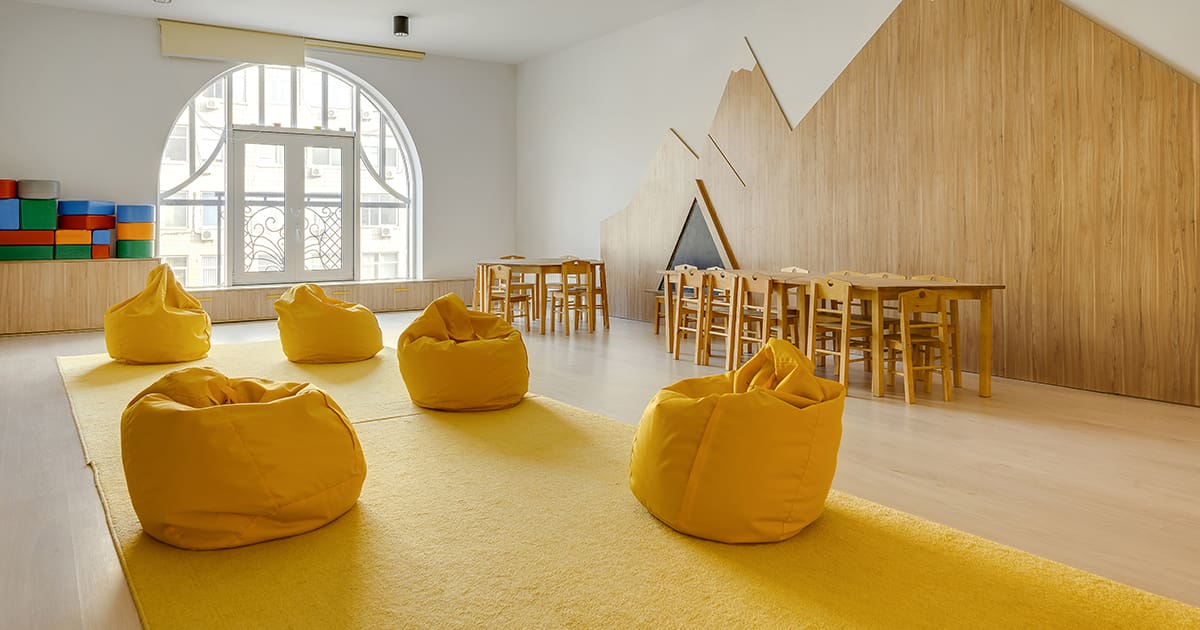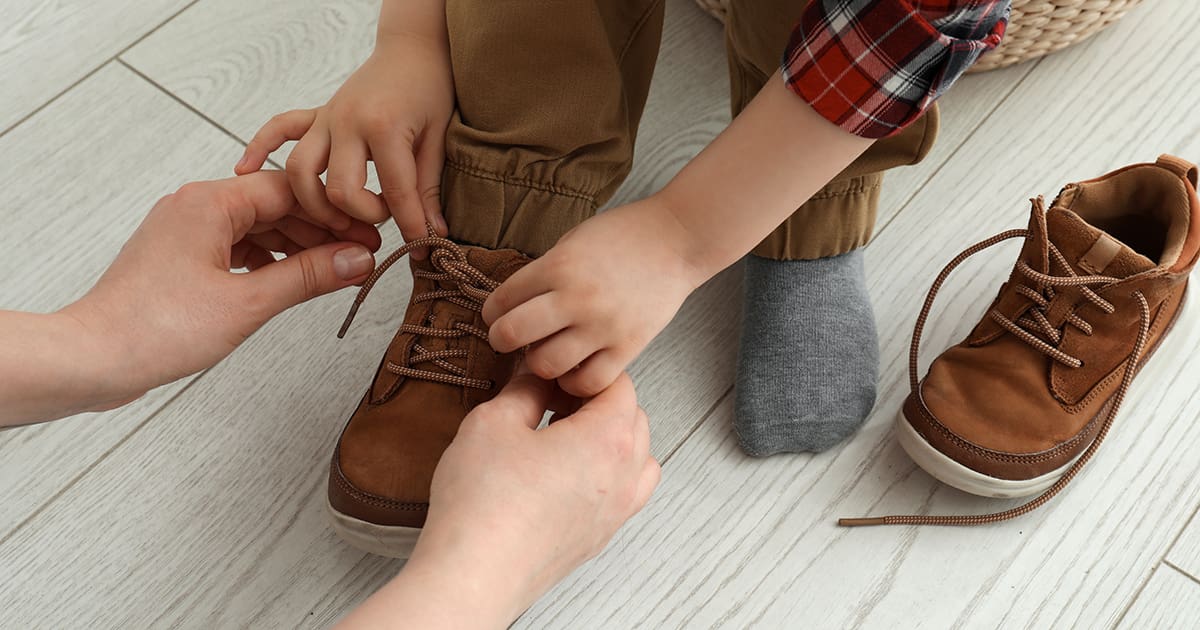Share this Post

Sensory triggers can play a significant role in how children with autism experience and interact with the world around them. These triggers—whether sounds, textures, lights, or smells—can create overwhelming sensations, leading to discomfort, anxiety, or emotional outbursts. While sensory sensitivities may vary greatly from one child to another, understanding and addressing these triggers is key to creating a supportive environment where children with autism can thrive.
At CST Academy, we specialize in helping children and families navigate sensory challenges. Our team of experienced therapists uses individualized strategies, sensory-friendly environments, and evidence-based techniques to help children feel calm, safe, and supported. By addressing sensory triggers with care and compassion, we empower children to overcome challenges and build the skills they need for success.
What Are Sensory Triggers?
Sensory triggers are specific stimuli that cause a heightened sensory response, either positive or negative, in individuals. For children with autism, these triggers may lead to sensory overload or sensory-seeking behaviors. Examples of sensory triggers include:
- Auditory Triggers: Loud noises, sudden sounds, or repetitive sounds like alarms or high-pitched tones.
- Visual Triggers: Bright lights, flickering patterns, or crowded environments with too much visual stimulation.
- Tactile Triggers: Certain textures of clothing, sticky substances, or unexpected physical contact.
- Olfactory Triggers: Strong smells from perfumes, cleaning products, or certain foods.
- Taste Triggers: Strong flavors, unusual food textures, or temperature sensitivities in food.
- Vestibular Triggers: Sensitivity to motion or difficulty with balance-related activities.
Understanding a child’s unique sensory profile is crucial to identifying these triggers and developing effective strategies to manage them.
How Sensory Triggers Affect Children with Autism
For children with autism, sensory triggers can impact daily life in significant ways. These triggers may lead to:
- Sensory Overload:
When sensory input becomes overwhelming, children may experience meltdowns, withdrawal, or physical discomfort. - Avoidance Behaviors:
Children may avoid certain environments, activities, or people associated with sensory triggers, limiting their participation in everyday experiences. - Difficulty Focusing:
Sensory distractions can make it harder for children to concentrate on tasks or engage in learning. - Emotional and Social Challenges:
Sensory triggers may cause frustration, anxiety, or misunderstandings in social settings.
While these challenges can feel daunting, they also present opportunities for growth with the right support and interventions.
How CST Academy Supports Children with Sensory Triggers
At CST Academy, we are committed to creating a safe, inclusive environment where children with autism can explore, learn, and thrive. Our team of occupational therapists, behavior specialists, and educators works together to address sensory challenges with individualized strategies tailored to each child’s needs.
1. Sensory Assessments and Personalized Plans
Every child’s sensory profile is unique. That’s why we start with a comprehensive assessment to understand their specific triggers, sensitivities, and sensory-seeking behaviors. This allows us to develop a customized plan that supports their sensory needs.
Assessment Components Include:
- Identifying sensory triggers across different sensory domains (e.g., auditory, tactile, visual).
- Observing responses to various sensory stimuli.
- Collaborating with parents to understand sensory challenges in home and community settings.
2. Sensory-Friendly Environments
Our classrooms and therapy spaces are designed to be sensory-friendly, providing children with a calm, supportive environment where they feel safe and comfortable.
Features of Our Sensory-Friendly Spaces:
- Soft lighting and neutral color palettes to minimize visual overstimulation.
- Quiet zones with noise-canceling headphones or weighted blankets for calming breaks.
- Sensory tools like fidget toys, swings, and tactile bins to encourage exploration and regulation.
3. Sensory Integration Therapy
Sensory integration therapy is a cornerstone of our approach, helping children process and respond to sensory input in adaptive ways.
Examples of Sensory Integration Activities:
- Swinging or balancing exercises to improve vestibular processing.
- Tactile activities like playing with kinetic sand or finger painting to desensitize touch sensitivities.
- Deep pressure exercises like squeezing stress balls or using weighted items to promote self-regulation.
4. Emotional Regulation and Coping Strategies
Managing sensory triggers often requires teaching children emotional regulation and coping skills. At CST Academy, we use a variety of strategies to help children recognize and manage their sensory responses.
Techniques Include:
- Visual aids, such as emotion charts or social stories, to help children identify and express their feelings.
- Breathing exercises and mindfulness activities to reduce anxiety during sensory overload.
- Gradual exposure to triggers in a controlled, supportive setting to build tolerance.
5. Parent Training and Collaboration
We believe that parents play a vital role in helping children manage sensory challenges. That’s why we work closely with families to provide tools, resources, and guidance for supporting their child at home and in the community.
How We Support Parents:
- Sharing strategies for reducing sensory triggers in the home environment.
- Providing recommendations for sensory-friendly tools, such as noise-canceling headphones or compression garments.
- Offering tips for navigating sensory triggers in public settings, like grocery stores or playgrounds.
The Long-Term Benefits of Addressing Sensory Triggers
With the right support, children with autism can learn to manage sensory triggers effectively, leading to meaningful improvements in their quality of life. The long-term benefits include:
- Improved Emotional Regulation:
Children develop strategies to manage sensory overload and reduce anxiety. - Greater Participation in Activities:
Addressing sensory challenges enables children to engage in learning, play, and social interactions more comfortably. - Enhanced Confidence and Independence:
Mastering sensory coping skills empowers children to navigate daily routines with greater ease. - Stronger Family Connections:
Reducing sensory-related stress fosters more positive interactions and bonding within families.
Why Families Choose CST Academy
Families trust CST Academy to provide compassionate, individualized care that addresses every aspect of their child’s development. Here’s why parents choose us to support their child’s sensory needs:
- Experienced Team: Our therapists specialize in addressing sensory processing challenges in children with autism.
- Holistic Approach: We focus on integrating sensory support with communication, social, and academic goals.
- Family Collaboration: We partner with parents to ensure that strategies and progress extend beyond the therapy setting.
- Inclusive Environment: Our sensory-friendly spaces create a welcoming and calming atmosphere for children to thrive.
A Parent’s Perspective on CST Academy
“Before CST Academy, my son avoided playgrounds because of the loud noises and bright lights. Now, thanks to their sensory integration therapy and strategies, he not only enjoys playing but also feels more confident in new environments. We couldn’t be happier with the progress he’s made!”
Take the First Step Toward Sensory Success
Helping children with autism manage sensory triggers is a journey that requires patience, understanding, and expert care. At CST Academy, we’re here to support your child every step of the way, providing the tools and strategies they need to feel comfortable, confident, and ready to explore the world.
Contact us today to learn more about how CST Academy can help your child navigate sensory challenges and achieve meaningful growth.
Discover Our Pediatric Therapy & Autism Care
ABA Therapy
Support for children with autism.
Diagnostic Evaluation
Expert assessments to identify child needs.
Pediatric Therapy Services
Speech, Occupational, Feeding, and Physical Therapy.
Therapeutic Preschool & Kindergarten
A classroom environment designed for early learners with unique needs.

Find the Best Care for Your Child




